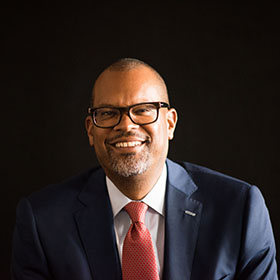One of the most important policies shaping the future of the nonprofit world was passed by Congress last month: the $2 trillion Cares Act.
Unlike legislation passed after the last economic crisis and bailout in 2007, this time the stimulus package includes money directly intended for nonprofit organizations, with the potential of tens of billions of dollars flowing to them in the months ahead. For many, these funds will be a lifeline during and in the wake of the Covid-19 pandemic. And today’s urgent needs are only the beginning. The tsunami of unemployment claims filed in recent weeks suggests that much greater federal action will be needed to steer the economy and country through these tough times.
To the extent nonprofit priorities are getting attention in the crisis, it is in large part due to the work of a small constellation of organizations that support the health and vitality of charities and foundations. These organizations include the group we represent, Independent Sector, but also many others that include the National Council of Nonprofits, Council on Foundations, and United Philanthropy Forum—often referred to as part of the nonprofit world’s “infrastructure.”
Of course, each of these organizations does more than the work we have seen them do in Washington, D.C., over the past several weeks. But if that were all they did—for this decade—it would be the best return on investment of a philanthropic dollar imaginable. Among the victories that will produce billions of dollars for nonprofits: access to Small Business Administration loans that can be forgiven and creation of a charitable deduction for people who don’t itemize and who want to give generously to good causes nationwide.
But we need to do more to ensure that nonprofits get the help they need when new stimulus bills are crafted and implementation plans for existing ones are shaped. And throughout this critical period we need full-throated advocacy campaigns to make certain that America’s most marginalized people don’t face the prospect of entrenched inequities becoming even deeper.
Think about it: Every philanthropic strategy depends on the health of nonprofits. A philanthropist’s work can be no stronger than the nonprofit organizations actually doing the work.
In the past few weeks, we have seen glimmers of deeper recognition of that fact as more than 500 grant makers signed a pledge committing to more flexible grant terms and greater levels of general operating support. It’s notable that these same infrastructure organizations—and many others, like Trust-Based Philanthropy Project, Nonprofit Finance Fund, California Nonprofits, Center for Effective Philanthropy, Grantmakers for Effective Organizations, and Bridgespan (the group one author, Jeff Bradach, leads)—have been pushing on this issue for decades and helped lay the groundwork for this move. Everyone hopes that this shift to providing more flexibility and leeway to grantees will last long after the pandemic ends and become standard operating behavior.
But this long-needed (and, frankly, belated) shift is minor in the context of what it will take for nonprofits to survive the crisis and do their vital work. That’s why the current and future federal stimulus packages will be destiny-defining for many nonprofits.
That is especially true for the small, community-based nonprofits that often serve the most vulnerable but have little access to members of Congress or their staffs as they craft legislation.
The crisis will hit the people those groups serve the hardest, and the recovery will reach them last. Ensuring those groups have a strong voice is essential if we want to persuade Congress to provide investments needed today to help those on the front lines of delivering services. And it’s the only way to guarantee that ideas for stronger and more equitable systems now and during the recovery have a chance of getting a fair hearing by lawmakers.
Nonprofit leaders deeply understand what’s at stake. In recent days, over 17,000 signed up to participate in Zoom calls hosted by National Council of Nonprofits and Independent Sector to learn about the new legislation. Take note, grantmakers: This matters to the organizations you support. Hugely.
What happens next as Congress considers additional legislation—and as the executive branch implements programs in the recent stimulus measures—hinges on the effectiveness of these infrastructure organizations. The reason they succeeded in achieving major victories on the Cares Act is that they have a talented set of leaders and staff who have built relationships on Capitol Hill through their many years of advocating for nonprofit needs. The work of those organizations—coupled with the horsepower of organizations like the America Heart Association, the American Red Cross, United Way Worldwide, and the YMCA—is what it took to get relief for nonprofits built into the Cares Act.
You might think, given the role these infrastructure organizations play, that they would have ample budgets provided by philanthropic organizations and big donors across the United States. But you would be wrong.
In the case of Independent Sector, we have depended for years on a small number of foundations—including Ford, Gates, Hewlett, Mott, Packard, Robert Wood Johnson, and Barr—to carry the load, with a few new grantmakers joining their ranks recently, such as the Skoll Foundation, Walmart Foundation, Fidelity Charitable Trustees’ Initiative, and the Fetzer Institute. But the vast majority of philanthropists are neither members nor donors to Independent Sector or the other infrastructure organizations, despite the crucial role these groups play. (See more about a recent study on the funding of infrastructure organizations that documents this pattern.)
It is time for philanthropy to step up and ensure that these guardians of the health and vitality of the nonprofit world have the grant dollars they need to serve us all at this crucial time—and always. A commitment to them should be a meaningful part of every grantmaker’s portfolio.
The question isn’t whether the nonprofit infrastructure organizations fit into a foundation’s grantmaking priorities. The real issue is whether any philanthropic missions can be carried out if nonprofits doing essential work are struggling or dying. That is what will happen if we don’t act now and bolster the organizations that advocate on behalf of all groups seeking to advance the common good.
Grantmakers must act now to support these organizations with dollars and by exercising their voices to ensure that our legislators don’t take for granted the nonprofits that are one of the most distinctive elements of America and vital sources of hope and recovery, especially for the most marginalized among us.
Dan Cardinali is CEO of Independent Sector. Fred Blackwell is CEO of the San Francisco Foundation and vice chair of Independent Sector’s board. Jeff Bradach is co-founder and managing director of the Bridgespan Group and chair of Independent Sector’s board. (The Chronicle is a recipient of funds from the Hewlett Foundation’s program to advance effective philanthropy and from the Mott Foundation's program to advance civil society. See more about our gift-acceptance policy.)



